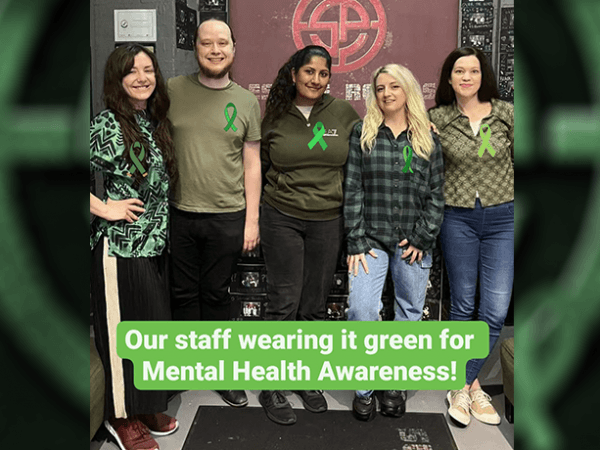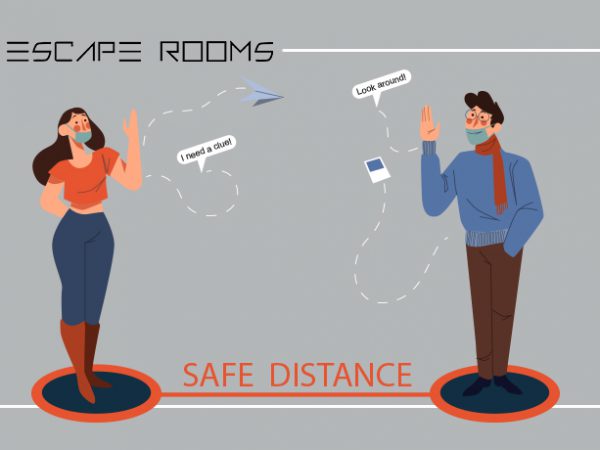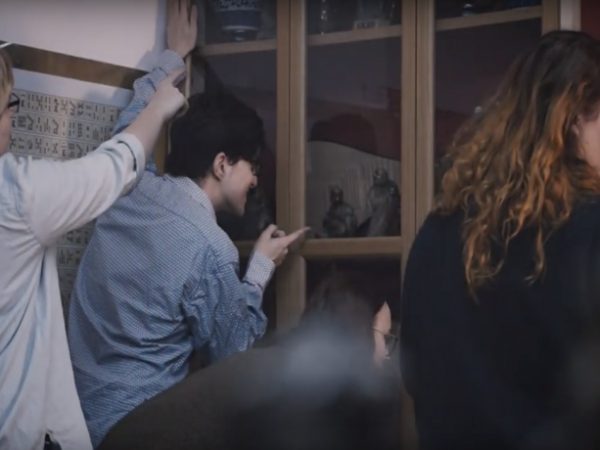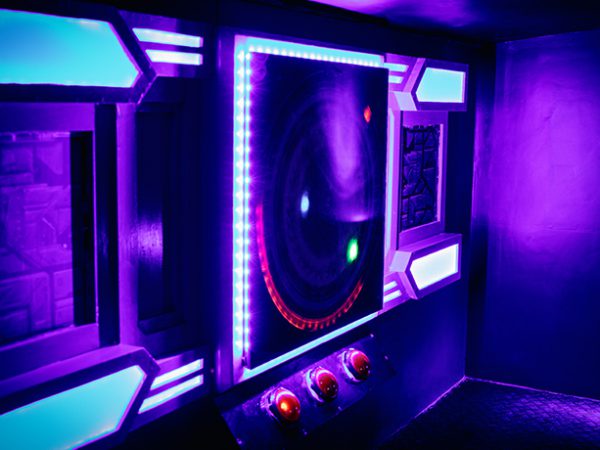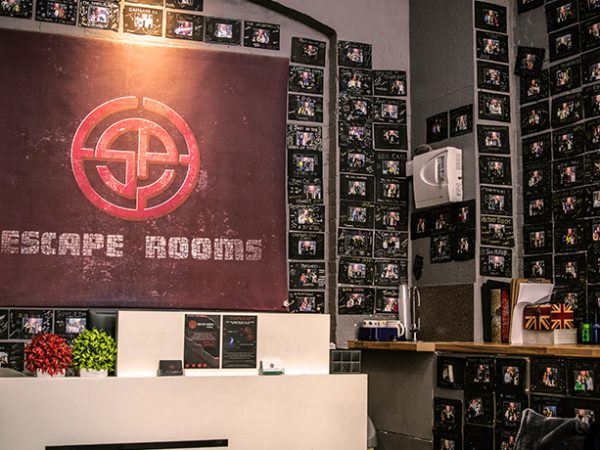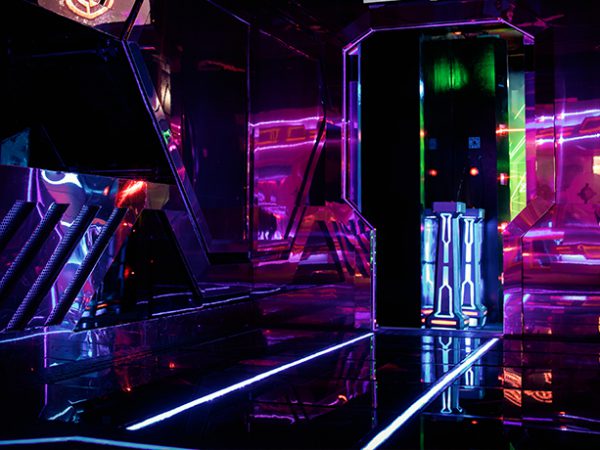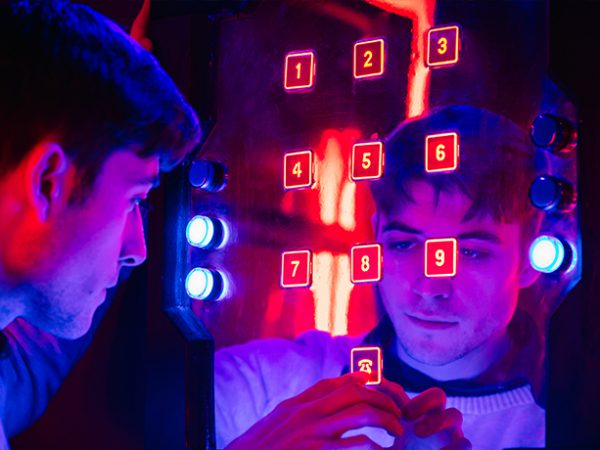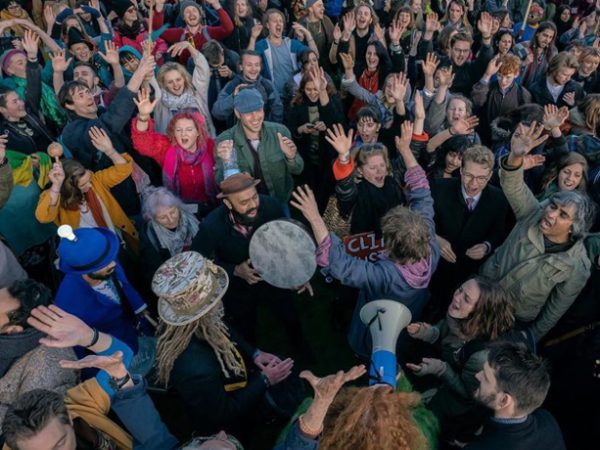I would like to talk about the flow in an escape room. By this term I don’t mean the game flow but the psychological state of mind also known as being in the zone. When I played my first escape game 6 years ago – when this concept was quite new (see the blurry pic below) – it left me in awe. I couldn’t stop talking about it for weeks, I felt the urge to tell everyone about it. It made me wonder, what exactly has left such a deep impact on me and why? The game was ok, the room was pretty basic and our team was a bit random. So what then? After doing some research on good old Google, I came across the term ‘flow zone’ – an expression I was familiar with but not in relation to escape games.

In the psychological terminology flow is a state of mind where the person is fully involved with whatever activity or task is being carried out, in our case playing an escape game. They enjoy it and are physically and mentally completely engaged; focused. They’re motivated by the activity itself and that becomes the reward, rather than the result. The person is absorbed in the activity so deeply that basic needs such as hunger or need to sleep disappear and time seems to be flying by. The concept has existed before e.g. in certain Eastern religions but was first given a name by MihályCsíkszentmihályi, a Hungarian-American psychologist and is explained in this chart:

The vertical axis shows how difficult a puzzle/task is, the horizontal axis shows the level of our own personal skills. For example, if the customer is very skilled but the puzzle is too easy, they will get bored. If the puzzle is way too hard and they don’t have the right set of skills to solve it, eventually they will get anxious and frustrated.
To simplify this chart especially focusing on escape games, here is another chart showing the flow channel located:
So in the flow zone, the difficulty of the challenge is proportionate to the skill levels.
If it’s really such a great thing being in the zone, why don’t we do it all the time? Because one doesn’t just land in the zone or creates it; in order to be engaged in a state of flow, several conditions must be met. In the case of the escape games, these conditions come from 2 directions: both from the game (as in the actual puzzles and the room) and from the player.
Let’s quickly go through these conditions in reflection of escape games:
1) Complete focus and involvement
Ideally, the player is concentrating on solving the puzzles and only the puzzles rather than checking their phone, catch up with their teammates or trying to figure out whether the wall is real or fake brick wallpaper.
2) Clarity and immediate feedback
A bit of a tricky one here when it comes to escape games because if a puzzle is clear (how to be solved) it’s not a puzzle, it’s just a task. What clarity means here is that the player knows the main goal (escaping) and the immediate feedback would be coming from solving each puzzle one by one, taking them closer to the end of the game.
3) The perception of time or timelessness
Time is one of the main elements in escape games as its very limited and time flies when you’re having fun. When the player is in the zone, time feels like it’s flying by (or it could be slowing down) and this is always the case in an Escape Room. We all know the feeling of when you enter, check the time – 50 mins left – and when you check again, 15 minutes remaining and you don’t know how that happened.
4) Intrinsic motivation
The idea here is that when the team is in the flow zone, they are working towards a prize or a reward but doing the activity for its own sake. In an escape game, if our sole goal was only to escape, we could just get all the hints and quickly solve the puzzles. But in the flow zone solving the puzzle is so enjoyable it becomes the reward. A very typical question from teams coming for the first time: What’s the prize when you escape? (Oh but nothing!)
5) Effortlessness
When a puzzle proves to be too hard to be solved, the flow easily turns into stress. There is a very thin layer between a puzzle being too difficult or just hard enough to be challenging and not too easy to be solved. If I look around in a room and immediately know how to solve puzzles, I will fall out of the ‘flow zone.’ So in this case effortlessness means not too much effort but some.
6) Balance of challenge and skills
Whatever escape room and puzzles, there will always be teams who would find the room impossible to escape and there will always be teams who fly through the game in record time as if they’ve done the type of puzzles before. It’s pretty hard to set the level of difficulty when designing games without knowing the level of skills of the players but game designers can try by creating a wide and colourful variety of different puzzles and obstacles.
7) Action and awareness are merged
…meaning that the outside world is not only physically locked out but also mentally. The players are focusing so much on the puzzles that all the worry of the everyday world disappears. The only reality they’re aware of is right here and right now. Nothing else exists. As previously mentioned, in order to keep flow, teams must be completely invested but the immersion of the game is also relevant.
Experiencing this is great and it’s a rare phenomenon. Though it does make me wonder whether we’re trying to escape from the room or escape into the room?
8) Control
Let’s not get fooled by the word ’control’ here, all that means is that while being in the flow zone, we know that the task is doable therefore there is no fear of failing. Or, that is the idea behind it. I would bend this a bit by saying that the fear of failing could become a motivational element when it comes to problem solving or puzzle solving.
While the flow zone is mainly entered individually, there is such a thing as a team flow zone and I think it mainly occurs in a come-and-go pattern during a game. I hope you found this as interesting as we did at Escape Rooms. Do you get into the flow zone? Perhaps you have something you’d like to extend on! Do leave a comment below, we’d be interested in finding out more!

